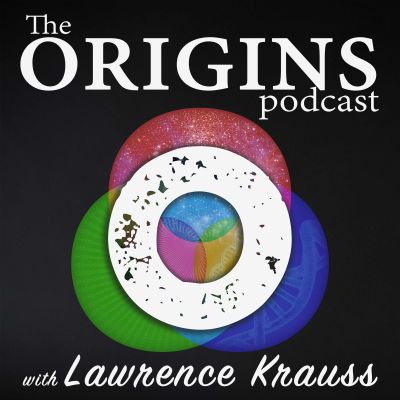The Origins Podcast features in-depth conversations with some of the most interesting people in the world about the issues that impact all of us in the 21st century. Host, theoretical physicist, lecturer, and author, Lawrence M. Krauss, will be joined by guests from a wide range of fields, including science, the arts, and journalism. The topics discussed on The Origins Podcast reflect the full range of the human experience - exploring science and culture in a way that seeks to entertain, educate, and inspire. lawrencekrauss.substack.com lawrencekrauss.substack.com
https://lawrencekrauss.substack.com/podcast
Gesamtlänge aller Episoden: 6 days 10 hours 55 minutes
Richard Dawkins: From Selfish Gene to Flights of Fancy
Richard Dawkins needs no introduction. He is one of the world’s most well known scientists and science writers. He is also a good friend and colleague. As many of you may know, Richard and I have toured much of the world together on stage, often in dialogues about our disciplines, our views of the world, and of course the conflict between science and religion...
Alex Garland: Fundamental questions inspire art and science
Alex Garland is probably best known to the world for writing and directing the blockbuster film Ex Machina about the consequences of the coming of age of an AI humanoid robot. Before that, he wrote the film 28 days later, about the fictional aftermath of a mysterious incurable virus that spreads through the UK. Most recently he directed a television series for FX called Devs, about many things, but hinging on quantum mechanics and issues of a multiverse...
Geoff Marcy: The Search for Exoplanets and Life Elsewhere in the Universe
Geoff Marcy has been pioneer in the search for extra-solar system planets since the first discovery of an exoplanet surround a main sequence star was made in 1995 by Michel Mayor and Didier Queloz. Within months, Marcy and his team had not only confirmed this result but detected numerous other exoplanets...
Andy Knoll: The First Four Billion Years of Life on Earth
Andy Knoll is a Renaissance Scientist. He is a geologist, paleobiologist, and geochemist and has applied key ideas from chemistry, biology, physiology and more to understanding the key developments associated with life on Earth—both how geology and chemistry have impacted on life, and vice versa...
Charles Murray: On Human Diversity
After writing the book, The Bell Curve, Charles Murray became a controversial figure in the US Social Science scene, and was much maligned in the public arena. His work has been misinterpreted as being racist and sexist, and at Middlebury College students forcibly stopped his guest lecture and rioted...
(Audio) John Mather: From the Big Bang to Searching for Life
John Mather is an astrophysicist at NASA who has been involved in important space missions to probe our fundamental understanding of the Universe for over four decades. He helped lead the design and deployment of the Cosmic Background Explorer Satellite (COBE), which launched in 1989 to probe the cosmic microwave background radiation from the Big Bang with a precision that could not be obtained from terrestrial experiments because of absorption of radiation by the atmosphere...
Origins Podcast with Michael Shellenberger: From Apocalypse Never to Running for Governor
I was very happy to have the chance to speak to Michael Shellenberger some time ago, after his book Apocalypse Never appeared. Having written my book, The Physics of Climate Change, I was intrigued by his take on the fact that climate change is not an existential threat. Once I read his book, I realized we agreed on many things, with perhaps the differences being on emphasize rather than substance...
Jonathan Rauch: Free Thought, Democracy, and the Nature of Science
Jonathan Rauch was 30 years ahead of the curve. In his book Kindly Inquisitors, written in 1993, he described the very mechanisms by which ideology can undermine both the search for truth, and the democratic ideal of free thought—mechanisms which have now become endemic in our society. But more than that, in that book, and in The Constitution of Knowledge, written in 2021 he lays out more clearly than anyone I have ever read, the philosophical and sociological basis of science...
Alan Guth: Inflation of The Universe & More
In 1979 Alan Guth, then a postdoc at Cornell, made what is perhaps the most important contribution to our theoretical understanding of the evolution of the Universe in the past half century...
Dorian Abbot: From Climate and Exoplanets to DEI and Free Speech.
Dorian Abbot is an associate professor of geophysics at the University of Chicago, who uses mathematical and computational models to understand and explain fundamental problems in Earth and Planetary Sciences. His work on climate, and paleoclimate in particular is particularly important as we try and determine the likelihood that some exoplanets may be habitable...
